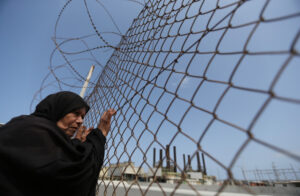DC-Cam is playing a key role towards genocide prevention
The preamble to the Convention on the Prevention and Punishment of the Crime of Genocide states that “genocide is a crime under international law”, yet since the Genocide Convention was ratified in 1949, how many genocides have occurred? And how many of these genocides have been prosecuted under national or international law? Since 1949, only three genocides (Cambodia, Bosnia and Rwanda) have been prosecuted in an international court.
Cambodia lost approximately two million lives in less than four years. It has been over 40 years since the collapse of the Khmer Rouge and five million survivors are still alive today. I am one of them. Most survivors continue to struggle with the horrors they witnessed or suffered and the effects of the period resonate in their lives, not only in the form of mental trauma, but also health conditions and injuries that persist with little public recognition, let alone actual support in services and care.
The Documentation Center of Cambodia (DC-Cam) has established itself as not only the world’s largest repository for records about the Khmer Rouge regime but also a key contributor to genocide education in Cambodia. We have also been working with the Association of Southeast Asian Nations (Asean) on this topic. Our work continues to proceed incrementally but steadily forward because Asean, though one community, continues to co-exist with invisible but still very sensitive lines.
DC-Cam sees documentation and genocide education as crucial components to preventing and addressing the effects of genocide; however, this is just one dimension of our overall effort. In 2021, DC-Cam will be expanding its work with survivors to include support for their medical care and well-being.
DC-Cam will be implementing activities directly aimed at improving their health, welfare and well-being as well as field research and outreach activities that raise public awareness of the struggles of survivors. The nation-wide project represents a great step forward in not only calling attention to and actually addressing the great gap in services and support for the health, welfare and well-being of survivors of genocide but also transforming the concept of transitional justice into restorative justice.
Restorative justice depends upon leveraging pre-existing entry points and approaches as much as creating new ones that are based on a contemporary, evolving society. One guiding question asked for a response to the main entry points for promoting atrocity prevention, and my response would be that grassroots as well national-level stakeholders and institutions are equally important to achieving any impactful change.
Another guiding question asked to identify the educational tools that have been most useful for education related to atrocity prevention and I reiterate that impactful change depends as much on leveraging well-known and accepted approaches to learning as much as introducing new ones.
DC-Cam has implemented a marriage of traditional as well as contemporary forms of learning and education in order to achieve a combination of the old and new. In this way, education both partially reaffirms a person’s prior knowledge and experience, as much as it transforms what they know and think about the world.
I close by stating that transitional justice can only be justice if it is truly founded upon a credible and impactful effort aimed at restoring as much as transforming the society and each individual person.
Youk Chhang is the Director of Documentation Center of Cambodia




